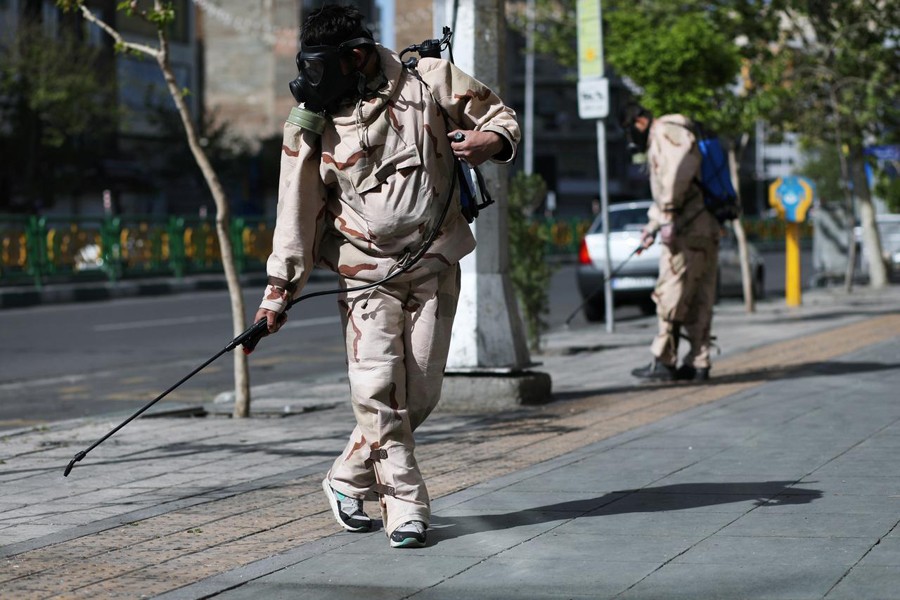A senior Iranian health official said the greater Tehran area may face a coronavirus resurgence after many residents flouted advisories to stay home, crowding streets and causing traffic jams across the city as the country’s New Year holidays ended on Saturday.
Iran - the Middle East country worst-hit by the epidemic - said earlier on Saturday that 158 more coronavirus patients had died in the past 24 hours, bringing the total death toll to 3,452. The total number of cases reached 55,743.
“We are still concerned about the virus, for example with the level of traffic in Tehran today and queues of cars stuck on freeways, because these people can take the virus to their homes or workplaces,” Deputy Health Minister Iraj Harirchi said on state TV.
“Even a medium level of virus here can spread to nearby cities with the high level of job-related traffic between nearby cities and Tehran,” said Harirchi, who has himself been ill with COVID-19.
“Dr Harirchi cautioned about a probable return of coronavirus in case of negligence and said social distancing measures were absolutely necessary,” said the TV.
The television showed stores that had re-opened despite a closure order on non-essential services and businesses. Only enterprises involved in production have been allowed to re-open while following anti-coronavirus precautions.
Officials have repeatedly complained that many Iranians ignored appeals to stay at home and cancel travel plans for the New Year holidays that began on March 20.
Iranians traditionally travel to home provinces and popular vacation spots and organise family gatherings during the New Year holidays. Officials initially urged people to cancel such plans due to the coronavirus outbreak, and then imposed inter-city travel bans on March 25.
Earlier the judiciary said most of some 70 inmates who escaped from a prison in western Iran last month are now back in jail. About 100,000 prisoners have been granted temporary release due to the coronavirus epidemic.
Iranian media have reported unrest in several prisons.
Criticism Of US Sanctions
In a rare comment in Britain’s Guardian newspaper, Tehran Mayor Pirouz Hanachi said US sanctions were crippling Iran’s fight against the coronavirus.
“As a result (of sanctions), the ability of my colleagues and I to provide the health, logistical and other essential infrastructure necessary to combat the disease has been drastically reduced. We experience this loss every day, and it can be counted in people that would not have died,” Hanachi said.
Separately, the foreign ministry accused US Secretary of State Mike Pompeo of “medical-terrorism” through the sanctions, which have hit vital sectors such as oil and banking.
“Undisputed fact: US ‘diplomats’ have long been in the business of coups, arming terrorists,” ministry spokesman Abbas Mousavi said on Twitter on Saturday. “But @SecPompeo ... and his masters have taken the ‘job’ to a whole new level: #Medical_terrorism.”
Pompeo and other US officials have stressed that humanitarian supplies are exempt from sanctions Washington reimposed on Tehran after President Donald Trump abandoned Iran’s 2015 multilateral deal to limit its nuclear programme.
However, broader US sanctions deter many US and global firms from humanitarian trade with Iran.
Meanwhile state media quoted President Hassan Rouhani as saying that state support for businesses hit by the coronavirus outbreak would be restricted to enterprises that give assurances not to lay off workers.


